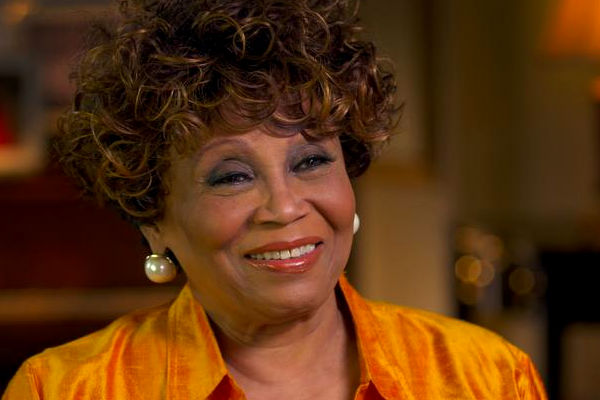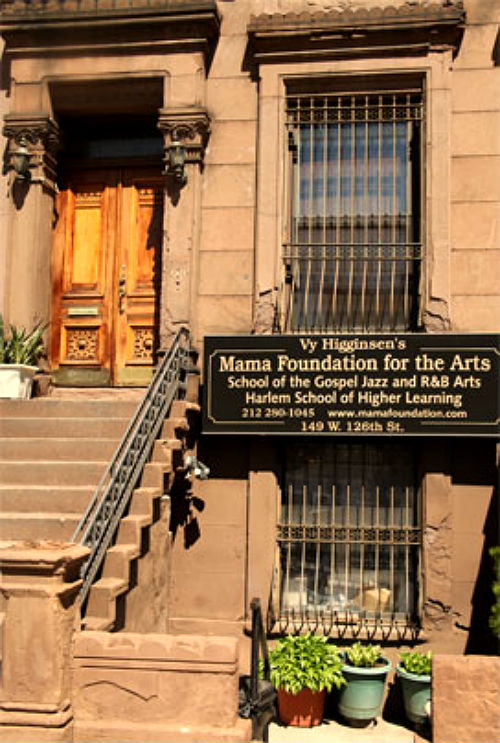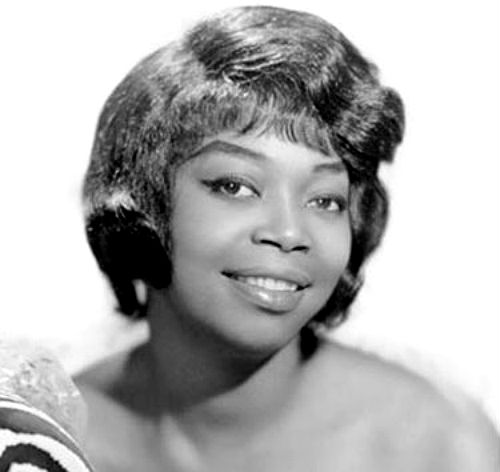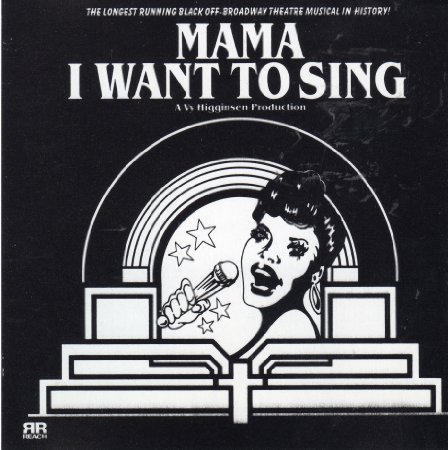 By Anthony T. Eaton
By Anthony T. Eaton
Harlem was founded in the century as a Dutch outpost and over time developed into a farming village, a revolutionary battlefield, a resort town, a commuter town and a ghetto. In the early 1900’s, Harlem became an African-American neighborhood. Sometime around 1910 the first stage of the Harlem Renaissance began lasting through the 1920s.
The success of the Harlem Renaissance was the result of an explosion of Black culture redefining how the world viewed African-Americans. As a result, African-Americans became recognized for their artistic contributions worldwide as well as their intellectual and social contributions. Many contemporary women of the period played an integral role in this Renaissance.
Amongst these women were Librarian and Playwright Regina M. Andrews, writer and teacher Marita Occomy, popular lecturer and dramatic elocutionists Hallie Brown and writer, editor, educator Jessie Fauset. Unfortunately, a slow decline in Harlem that began with the Great Depression resulted in the loss of jobs for residents and a deterioration of Harlem that would last for decades to come.

After years of decline, in the late 1990’s Harlem began to see a resurgence of residents, businesses and culture reminiscent of the original Harlem Renaissance. After watching a segment on 60 Minutes, I reached out to one of the women who not only grew up in Harlem but has been instrumental in the new Harlem Renaissance. Playwright, director and founder of MAMA Foundation, Vy Higgensen was gracious enough to share with me some of her own experiences and thoughts on leadership and more.
Related: Get more Harlem history HERE at our Harlem History Facebook page.
Anthony T. Eaton: Let’s start with your growing up. You spent your early years in Harlem when it was a very different place, then as dramatic social changes were happening your mother moved you to the Bronx, how did that impact you?
Vy Higgensen: Moving to the Bronx in those days was like moving to the suburbs. I was the only black child in an all-white school, and that provided me with an opportunity to play outdoors, attend dance classes and still stay connected to my culture in Harlem.
AE: Your mother was one of the first African-American women to earn her real estate broker’s license at that time; did her accomplishment make an impression on you?
VH: Yes, seeing my mother with her real estate license and being the youngest child, I followed her where she went. Her leadership provided me with the knowledge of how important it is to communicate effectively.

Vy’s sister Doris Troy was working at the Apollo where she was discovered by James Brown. She went on to work with Solomon Burke, The Drifters, Cissy Houston, and Dionne Warwick, before she co-wrote and recorded “Just One Look“, which hit #10 in the US Billboard Hot 100 in 1963. Over the course of her solo career, she sang back-up for The Rolling Stones, Pink Floyd (on their album The Dark Side of the Moon), George Harrison, Dusty Springfield, and Carly Simon, just to name a few.
AE: Your father who was a preacher passed away early. Your mother had to support you and your siblings at a time when opportunities for women were very limited compared to what they are today. How did that affect and influence you?
VH: My mother was a role model. I watched her work seven days a week, and it provided me with a strong work ethic. I now work seven days a week. After the death of my father, I watched my mother play both roles and teach us all how to survive as human beings. My sister, Doris Troy, was quite a leader in the respect and one of my heroes.
AE: You lived through an era that saw some of the greatest social change ever with the Civil Rights and women’s movement; did you realize then the impact it would have on society and even you personally?
VH: I can only reflect, now, back to the different decades of change and how the civil rights movement and the women’s movement made a difference. The civil rights movement opened doors that allowed me to walk through, especially as the first woman in NY primetime radio in the coming-of-age of an industry where the idea of a woman on the radio was brand new.
AE: You were working at an early age before ever graduating high school and then worked as you went to college. While opportunities were opening up for women did you ever feel like there was a different expectation of you as a woman?
VH: I was always told to do my best. As long as I did my best, that would be good enough. I never used the ‘woman obstacle’ because survival was more important.
AE: There have been a lot of firsts for you, what was it like for you being the first female advertising executive at Ebony magazine and the first woman on prime time radio?
VH: I remember walking through the doors of Ebony Magazine and having the executive director wonder whether I was smart or stupid. He decided to take a chance on me and I became the first woman in advertising at Ebony, which was the best education I could possibly get. I learned the importance and the buying power of the black consumer market, which to this day serves me well as a producer and marketing/advertising person.
AE: As a woman did you face any unique challenges in these pioneering roles where men were still dominating the field?
VH: Yes. It was hard, yet it was simultaneously motivating and inspiring to compete in a man’s world.
Together with her husband and creative partner Ken Wydro the pair wrote, produce and directed the play Mama, I Want To Sing based upon her sister Doris’ life and career in music. Despite being rejected by every major producer in New York they continued without a producer and invested their life-savings in bringing the production to the stage.
In 1983, they leased the 632-seat Heckscher Theatre in East Harlem, which had previously been closed for 15 years and the show would go on to run for 1,500 performances.
AE: In 1983 you were the first African-American woman to write, produce and direct the longest-running, Off-Broadway musical in the history of American theater investing your own money. Did you face challenges taking your project to the stage because you were a woman?
VH: I can’t say that it was challenging because I was a woman. I can say it was challenging because doing anything of that magnitude is difficult for anybody. But, it was an adventure and a journey that I was willing to risk and attempt. We put in the time. We put in the hours. And it paid off.
AE: The play you wrote is based upon your sister’s experience coming from a spiritual background and wanting to perform contemporary music. Did you struggle with any of those constraints yourself?
VH: No, but my spiritual principles and understanding provided the platform for perseverance.
AE: Faith and the church have been a foundation in your life and you yourself are also an interfaith minister. While women have always been an instrumental part of the church they have not had the same exposure and recognition as men; why do you think that is and do you think it is changing?
VH: Yes, it’s changing. Women have been the backbone of most religious institutions, and now many churches and organizations are recognizing and appreciating the contributions that women bring to the religious experience.
AE: In 1988 you went on to become the first African-American woman to produce a drama on Broadway with “Joe Turner’s Come and Gone”. Did your success with “Mama I Want To Sing” open doors that had previously been closed?
VH: It opened my curiosity to better understand how things worked on Broadway – in the place that had been traditionally closed to a black culture. The experience was dramatic – experiencing the cultural and financial differences of a Broadway production expanded my gratitude for reaching and satisfying audiences with music.
In 1998, using her own money Vy established the Mama Foundation. Located in the building next door to Vy’s childhood home, it was her vision to help re-establish Harlem as an artistic and cultural centerpiece of the world. Mama’s mission is to present, preserve, and promote the gospel, jazz, and the R&B arts for current and future generations.
Since its inception, the Foundation has produced a dozen theater productions and in 2003, Vy created the School of Gospel, Jazz, and R&B Arts. Three years later, she formed the award-winning Gospel for Teens program to train youth and “save the music.” Since 2007, 60 Minutes has followed Vy and it was their segment about her show “Alive and Kickin” that inspired me to reach out to Vy.
AE: When you founded Mama Foundation for the arts, was there anything that surprised you about creating an arts foundation?
VH: How difficult it was to navigate not-for-profit funding. Yet, the commercial and entrepreneurial spirit was necessary to operate in a not-for-profit world.
AE: While you work with young men and women, is there anything that stands out to you about the challenges that young women are facing today compared to when you yourself were growing up in Harlem and the Bronx?
VH: What stands out to me is the advent of the internet and how people socially interact with each other. Also, how music and lyrics affect young girls’ behavior and self-respect, making decisions about relationships and sex at a younger age.
AE: Despite all the progress that has been made with civil rights and women having the ability to get jobs in fields that even recently had been dominated by men we still see women objectified in ways men are not. Do you think that we send mixed messages to young women and make it harder for them than it needs to be?
VH: I do believe our culture sends mixed messages to young women, making it more difficult to make a clear path for them into adulthood. It’s important we keep young women everywhere informed of where we come from and where we should be going in terms of equality.
AE: In another article you were quoted as saying to the teens you teach “…You’re learning how to sing from the radio, but you’re singing somebody else’s song.” Do you think that young women take the same approach and emulate those women around them without really taking the time to find out who they really are as individuals?
VH: Young people who have an opportunity to explore their talent are able to discover themselves. However, those who are less fortunate don’t always have the guidance and mentorship available. Therefore, they do listen to others sing and try to emulate it and can often miss an opportunity of self-discovery.
AE: Men have not had the same demands with work and family as women has it been difficult to balance these?
VH: Yes. The balance is difficult, and there’s always something that feels undone or sacrificed. It could mean that in the household the policy ends up being every man for himself.
AE: Strong women leaders get a different label then their strong male counterparts, why do you think people give men a credit and don’t give it to women?
VH: Society is still growing out of the old mindset that men are bigger, badder, and better. I’m encouraged by the achievements that women have made and I believe will continue to make as time goes on.
AE: Do you think women are doing enough to support each other and provide the opportunities men do to each other?
VH: I think a sister network is growing as I see intergenerational shifts. Women are passing on important information to the next generation.
AE: As a woman what do you want your leadership legacy to be?
VH: An understanding of the importance of communicating effectively. The success or failure of any product, service, people, or idea depends on the ability to communicate effectively. The continuing practice of balance, mind and emotion, intelligence and love.
AE: If you could give young women starting out their careers one piece of advice what would that be?
VH: Stay hydrated at all times.
And: eight hours of work is for survival… anything over eight hours is for success.
AE: I start each day by choosing a quote for the Leadership and More website and also share it through social media; do you have a favorite quote?
VH: “You lose some of the time what you go after; you lose all of the time what you don’t go after… so go for it.”

The resurgence of Harlem continues and Vy has been an instrumental part of it. Over the years she has had many firsts and triumphs gaining recognition for not only her contributions but also the importance of going after what you want. In March of 2015 she was honored by The Metropolitan Museum of Art and continues to write and produce original work as the executive director of the Emmy Award-winning Mama Foundation for the Arts in Harlem, New York.
To learn more about the Mama Foundation visit their website. For CD’s, DVD’s, books, posters and more visit the Mama Foundation online store.
Become a Harlem Insider!
By submitting this form, you are consenting to receive marketing emails from: . You can revoke your consent to receive emails at any time by using the SafeUnsubscribe® link, found at the bottom of every email. Emails are serviced by Constant Contact









